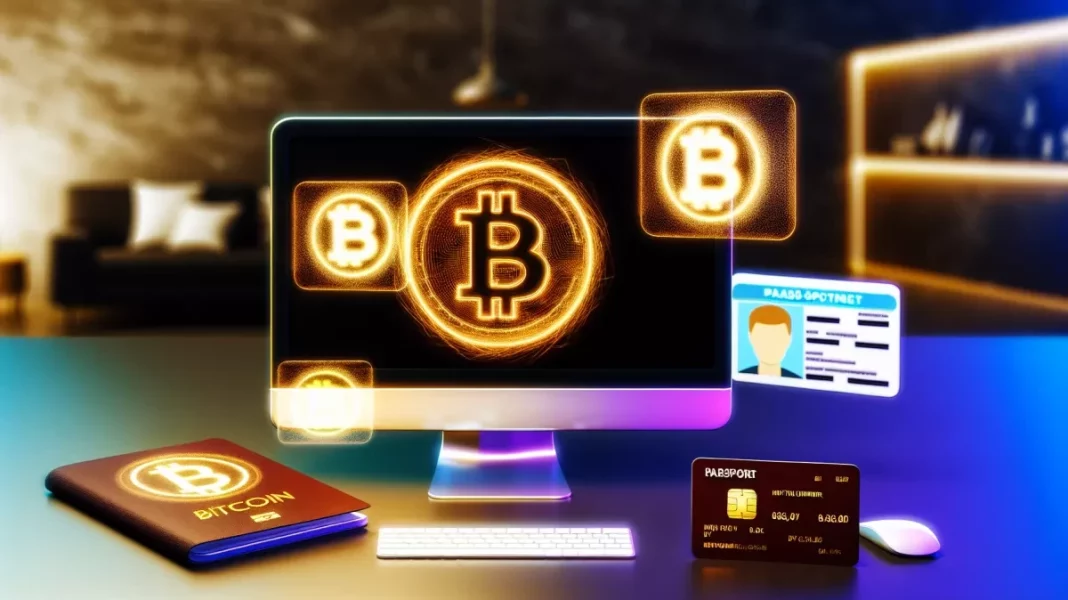In the ever-evolving world of online gaming, one sector consistently captures the imagination of technophiles and gambling aficionados alike: decentralized poker rooms. These platforms leverage the power of blockchain and smart contract technology to provide a peer-to-peer (P2P) betting experience that’s secure, transparent, and increasingly popular among players looking for alternatives to traditional online casinos.
Decentralized poker rooms stand as a testament to the innovative use of blockchain technology beyond the realm of cryptocurrency trades. At the heart of this revolution is smart contract technology, a feature inherent to blockchain networks like Ethereum. Smart contracts are self-executing agreements with the terms directly written into code, which allows for transactions and agreements to be carried out automatically without the need for intermediaries.
This technological advancement has significant implications for online gambling, particularly poker. In traditional online poker rooms, the house facilitates the game, holds player funds, and ensures the integrity of play, often leading to concerns about trustworthiness and the possibility of fraud. Decentralized poker rooms, however, distribute this responsibility among the players themselves, using smart contracts to manage the bets, pot distribution, and gameplay logic.
Let’s delve into how these decentralized poker rooms operate and why they’re gaining traction in the online gambling community.
Firstly, decentralized poker rooms utilize a P2P network where players connect directly with one another. This model contrasts sharply with conventional online poker platforms, where players connect to a central server. By removing the central server, decentralized poker rooms significantly reduce the risk of server downtime and the potential for manipulation by the platform operator.
The smart contracts in these platforms handle the shuffling and dealing of cards through cryptographic algorithms. This ensures that the process remains transparent and tamper-proof since any player can verify the fairness of the shuffle post-game using the blockchain. Further enhancing security, the use of smart contracts means that the funds are not controlled by any single entity. Instead, the contracts hold the stakes in escrow until the game concludes, distributing the winnings automatically to the appropriate party based on the game’s outcome.
Additionally, in conventional poker rooms, players must trust the operator to securely hold their deposits. Decentralized poker rooms circumvent this issue by allowing players to retain control over their funds until the moment they are wagered. This is made possible through the utilization of cryptocurrency wallets, which interact with the smart contracts to join games and place bets.
Decentralized poker rooms have also innovated in terms of their rake structure, the commission fee taken by a poker room operating a game. In traditional settings, the house takes a percentage of each pot or charges players a fee based on their playtime. Decentralized platforms often feature lower rake rates, as the overhead costs are significantly reduced without the need for as many human employees, physical infrastructure, or centralized servers.
For players concerned about privacy, decentralized poker rooms offer an additional layer of anonymity. Since transactions occur on the blockchain and are primarily associated with cryptocurrency wallet addresses rather than personal information, players can enjoy games without divulging sensitive personal data.
Within the ecosystem of decentralized online gaming, poker rooms stand out for their community-tailored features. Many of these platforms integrate voting systems, allowing players to make decisions regarding the development and operation of the room. This could include changes to gameplay rules, rake structures, or event types. Such democratic processes foster a sense of ownership and involvement among the player base, which can be a stark contrast to the top-down management of traditional online poker rooms.
Moreover, the profitability of decentralized poker rooms is promising, as the online gambling industry shows continuous growth. With the allure of improved security, reduced costs, and increased player control, these platforms are well-positioned to capture a significant share of the market. The participation in these rooms has been bolstered by the broader acceptance of cryptocurrencies for online transactions.
However, despite the numerous benefits, decentralized poker rooms do face challenges. These include scalability issues, as the current infrastructure of some blockchain networks leads to slower transaction times and higher fees during peak periods. User experience is another factor, as these platforms sometimes lack the polished interfaces of their centralized counterparts. Additionally, regulatory challenges persist as lawmakers grapple with the implications of blockchain technology in the gambling sector.
These obstacles noteworthily present opportunities for innovation. As blockchain technology continues to mature, developments in areas like layer 2 solutions and sidechains are poised to address scalability concerns. Similarly, poker rooms that focus on creating user-friendly platforms could help bridge the gap between the complex world of blockchain and the mass market.
In conclusion, decentralized poker rooms are reshaping the online gambling landscape through the strategic implementation of P2P betting and smart contract technology. They promise a future where the fairness, security, and autonomy of online poker are markedly improved. As these platforms evolve and mature, they are likely to attract a growing segment of the online poker community, catalyzing a major shift in how people partake in one of the world’s most popular card games. With continuous technological advancement and a dedicated player base, decentralized poker could very well be the next ace in the online gambling industry’s deck.



